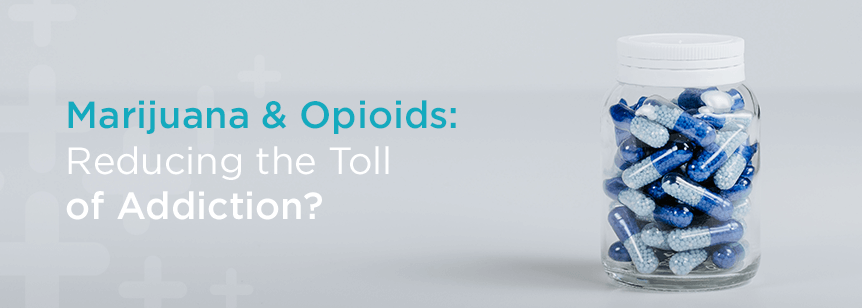
The opioid epidemic is devastating American lives, families and communities. The U.S. Centers for Disease Control and Prevention (CDC) estimates that 46 people die every day from prescription opioid overdoses.
Chronic pain, which affects 20% of U.S. adults, is one of the most common reasons opioids are prescribed, according to the National Center for Complementary and Integrative Health. Opioid use disorder—the misuse of prescription opioid pain relievers, such as oxycodone (Percocet, Oxycontin, Vicodin), synthetic opioids (fentanyl) and illegal opioids like heroin–can affect anyone, from teens and young adults to young parents and busy business executives, parents and the elderly.
With more Americans dying from opioid overdoses than car crashes, the CDC recently developed guidelines for healthcare providers for prescribing opioids for chronic pain and for patients with chronic pain to help improve care and reduce the risk of opioid addiction. Before starting opioids to treat chronic pain, the guidelines recommend that patients should:
The CDC also advises doctors treating patients with chronic pain in outpatient settings to prescribe nonopioid medications, including acetaminophen, ibuprofen, or certain medications that are also used for depression or seizures.
In other words, opioids shouldn’t be a first-line therapy. Doctors are advised to consider opioids only if the expected benefits for both pain and function are anticipated to outweigh the risks to the patient.
Missing from the CDC guidelines is the mention of medical marijuana in lieu of opioid medication or to reduce opioid dependency. Conflicting evidence about the medical effectiveness of using marijuana to manage opioid addiction may help explain why.
Consider: A landmark 2014 study in JAMA Internal Medicine reported lower opioid overdose death rates in states with medical marijuana laws. The study found that states with medical marijuana laws had nearly a 25 percent lower average rate of opioid overdose deaths from 1999 to 2010, compared to states without such laws. The researchers suggested that medical marijuana’s analgesic (pain-relieving) effect may decrease opioid use.
But a lot has changed since 1999. In fact, three states–New Jersey, New York and Pennsylvania—have passed legislation that allows opioid use disorder to be listed as an indication for medical cannabis, so patients with opioid use disorder enrolled in a certified treatment program can use medical marijuana as an opioid replacement.
Illinois also offers the Opioid Alternative Pilot Program, which gives Illinoisans the option to treat pain with medical marijuana in lieu of opioids.
Moreover, 22 states and Washington, D.C. list chronic pain as a qualifying medical condition for prescribing medical marijuana: Alaska, Arizona, Arkansas, California, Colorado, Delaware, Florida, Georgia, Hawaii, Iowa, Louisiana, Maine, Massachusetts, Maryland, Michigan, Minnesota, Missouri, Montana, Nevada, North Dakota, and Oklahoma.
Meanwhile, the number of opioid overdose deaths increased fourfold in 18 years, from 16,849 in 1999 to 70,237 in 2017, according to the National Institute on Drug Abuse.
Stanford University researchers decided to test the theory from the 2014 study–that medical marijuana could reduce the use of opioids and thus, the risk of addiction. They replicated the study and extended the data used for analysis through 2017.
The study, published in PNAS on June 25, 2019, found that not only did the original study results not hold up over the longer study time period, but that the association between medical cannabis state laws and opioid overdose deaths reversed direction.
The researchers reported that states with medical marijuana laws had average rates of opioid overdose deaths that were 23% higher than states without those laws. “The claim that enacting medical cannabis law will reduce opioid overdose death should be met with skepticism,” they said.
Can medical marijuana reduce the toll of opioid addiction? It’s complicated. According to the American Academy of Pain Medicine (AAPM), “the lack of high quality clinical research leaves both physicians and patients at a disadvantage when considering the potential risks and benefits of cannabinoids as medicine.”
For robust research to be conducted, the AAPM recommends that federal agencies reclassify cannabinoids from a Schedule 1 to a Schedule 2 drug. With that reclassification, more research can be done regarding the medical effectiveness, toxicity and safety of medical marijuana for treating pain and other medical conditions.
Meanwhile, if you live in a state where chronic pain or opioid use disorder is a qualifying condition, medical marijuana is an option. In a survey study involving 987 legal medical marijuana patients, two-thirds of whom had chronic pain, most reported that medical marijuana improved their symptoms.
Talk to your healthcare provider about how to use medical marijuana to achieve your treatment goals.
Sandra Gordon is a writer specializing in health and medicine for consumers and physicians. She has written for Everyday Health, Prevention, Healthgrades, Parents, the Cleveland Clinic, NYU Langone Health, Harvard Medical School, Your Teen, WebMD and many more.
No Information on MarijuanaDoctors.Com should be used to diagnose, treat, prevent or cure any disease or condition. You can view our Full Disclaimer here.